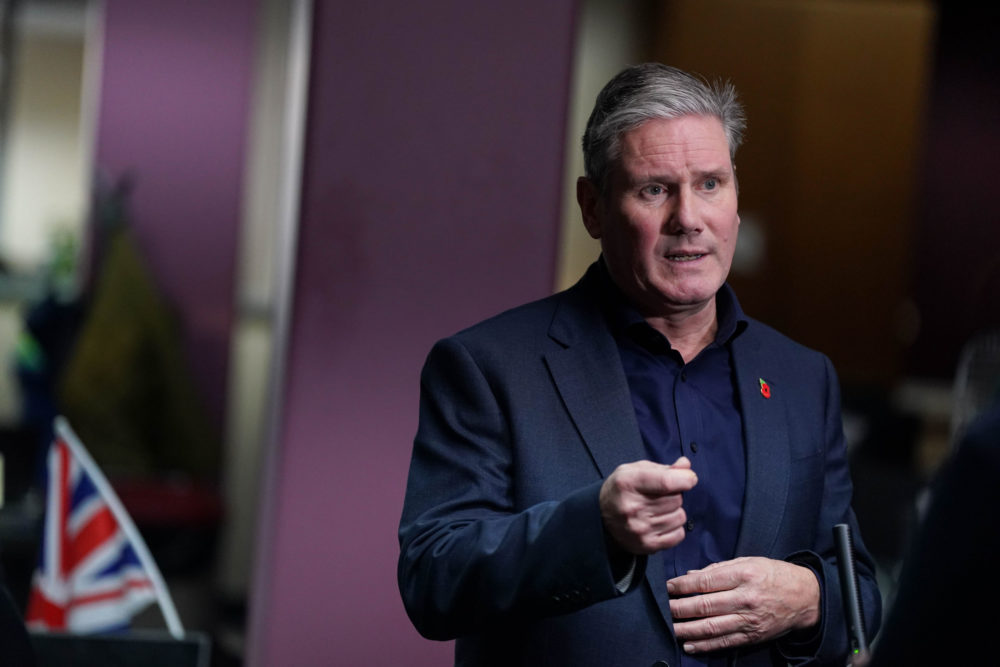Starmer wants to tackle civil service ‘churn’ – report

Sir Keir Starmer will seek to reduce “churn” among senior civil servants if Labour wins the next general election, according to reports.
Allies of the Labour leader have told the Financial Times that Sir Keir thinks that it is wrong that senior officials change or move jobs so frequently.
They told the paper that “civil service stability” will be important for delivering Labour’s aims in office, if it takes power after the next general election.
Former senior civil servant Sue Gray, who oversaw the report into pandemic-era rule-breaking in Downing Street, is among the top figures advising Sir Keir ahead of the next nationwide poll.
Election
An election must be held by January 2025, but Rishi Sunak is expected to call an election next year.
Cabinet Office minister John Glen hit back at Labour over the reports, accusing it of “copying and pasting from government policy”.
He said that there already is a “default minimum length of service for a director-general in the civil service at four years”.
“We have identified that churn is a significant issue and already taken steps to tackle this, with further announcements to come in due course.”
It comes at the same time as concerns that some civil servants are being overpromoted amid a squeeze on pay in Whitehall.
Senior jobs
The Times reported findings from the Institute for Government’s annual Whitehall monitor, due to be published in January, that “grade inflation” is seeing some less-qualified staff move to more senior jobs.
Unhappiness over pay could drive some people to the private sector, it warns.
“Pay in real terms has gone down quite significantly and part of the response to that in the civil service has been to promote people more.
“That’s a very notable trend,” Alex Thomas, programme director at the respected think tank, told the paper.
A Government spokesperson said: “All appointments go through rigorous processes, based on merit and through open and fair competition, as set out in the Civil Service Commission’s recruitment principles.
“We are building a more specialised, efficient and highly skilled Civil Service to deliver on the public’s priorities, while expanding our use of automation and AI to reduce administrative workloads, and the overall grade composition will change to reflect this.”
Support our Nation today
For the price of a cup of coffee a month you can help us create an independent, not-for-profit, national news service for the people of Wales, by the people of Wales.







Guess there must be a high turn over especially when you let loose that self inflated ego that was Cummins. Must be awful to get Boris as your boss, then Truss then Sunak and all the right wing think tanks they brought to the table bulldozing idiocy through in shovel loads.
So if Keir Starmer gets in next year does he U-turn again and go back to his 10 pledges? Or does he remain faithful to his new right wing policies for his rich donors? Or does he get a whole new hobby horse we haven’t heard about yet to distract from the real issues?
Only way is for the Labour membership to keep him on the straight and narrow if he deviates. If KS gets in we no longer have a Conservative government hell bent on selling the UK off to the highest bidder and wrecking the place in spite, those are some real issues now removed. But if you want rich donors pulling the strings, Rothermere of the mail, Barclay brothers, Murdoch, there are a whole raft with the Cons (non elected). Then look at the various donors dropping millions into the party especially as they lifted the levels for donations to fight… Read more »